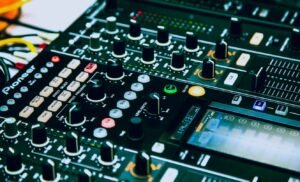Who Is the Best AI in the World?
Artificial Intelligence (AI) has rapidly advanced in recent years, with countless applications and developments across various industries. As AI continues to evolve, the question arises: Who is the best AI in the world? While there are several notable contenders, it is challenging to determine a definitive winner due to the diverse nature of AI capabilities and areas of expertise.
Key Takeaways:
- The best AI in the world is subjective and depends on specific criteria.
- AI capabilities range from natural language processing to computer vision, making comparisons difficult.
- Leading AI systems include OpenAI’s GPT-3, DeepMind’s AlphaGo, and IBM Watson.
Understanding AI Rankings
When considering the “best” AI, it is crucial to establish the criteria for evaluation. Should it be based on performance in specific tasks or overall versatility? Some AI systems excel in natural language processing, helping to generate coherent text, while others dominate in image recognition tasks or complex problem-solving scenarios.
*OpenAI’s GPT-3* is a prime example of an AI system renowned for its language processing capabilities. It can generate human-like text and is often praised for its versatility across multiple domains.
Rankings can also depend on the data sets and benchmarks used for evaluation. AI performance can significantly vary when tested on different datasets, making it challenging to determine a universal “best” AI. However, certain AI systems have gained significant recognition and acclaim for their achievements.
Leading AI Systems
| AI System | Developer | Main Features |
|---|---|---|
| OpenAI’s GPT-3 | OpenAI | Advanced language processing, text generation, and multitasking. |
| DeepMind’s AlphaGo | DeepMind (owned by Alphabet Inc.) | World-class performance in the game of Go and AI self-learning. |
| IBM Watson | IBM | Natural language understanding, problem-solving, and data analysis. |
OpenAI’s GPT-3 is a widely recognized AI system that has demonstrated exceptional language processing capabilities and the ability to generate natural text across various domains. Developed by DeepMind, AlphaGo has achieved remarkable success in the strategic board game Go, showcasing AI’s ability to excel in complex decision-making scenarios. IBM Watson, developed by IBM, combines natural language understanding, problem-solving, and data analysis to provide valuable insights and aid in decision-making processes.
Factors to Consider
When determining the “best” AI, it is important to consider several factors. The AI’s area of expertise, performance in specific tasks, impact in various industries, and potential for future advancements are all significant considerations. Moreover, the ability to adapt, learn quickly, and generalize knowledge is crucial for an AI system‘s overall success.
*AI systems continue to advance at an astonishing rate*, with new breakthroughs constantly challenging previous benchmarks and expectations. As technology progresses, the notion of the “best” AI is likely to remain fluid and subject to ongoing change.
Conclusion
Identifying the best AI in the world is a complex and subjective endeavor. With rapidly evolving technology and diverse AI capabilities, it becomes challenging to determine a definitive winner. However, notable AI systems like OpenAI’s GPT-3, DeepMind’s AlphaGo, and IBM Watson have showcased impressive achievements and capabilities in their respective areas of expertise. As AI continues to advance, it is crucial to appreciate the unique strengths and contributions each AI system brings to the table, without seeking a one-size-fits-all “best” AI.

Common Misconceptions
Misconception 1: AI Is All About Beating Humans
One common misconception about AI is that the best AI in the world is the one that can beat humans at various tasks. While AI systems like Deep Blue defeating chess grandmaster Garry Kasparov or AlphaGo defeating the world champion in Go have gained significant attention, they do not represent the entire field of AI. AI is not solely focused on surpassing human capabilities; instead, it aims to assist and augment human activities in multiple domains.
- AI is designed to collaborate with humans, not replace them.
- The best AI assists human decision-making processes rather than making decisions autonomously.
- AI is not limited to defeating humans in strategic games; it has a wide range of applications in healthcare, finance, and other industries.
Misconception 2: The Best AI Has Human-Level General Intelligence
Another misconception is that the best AI is the one that possesses human-level general intelligence. General intelligence refers to the ability to understand and perform any intellectual task that a human being can do. While AI has made significant strides in certain specialized tasks, achieving human-level general intelligence remains a distant goal. Current AI systems excel in narrow domains but struggle to generalize their knowledge and skills to new situations.
- AI systems demonstrate better performance in specific domains compared to humans, but they lack the versatility of human cognition.
- The best AI focuses on specialized intelligence rather than replicating the full range of human capabilities.
- AI and human intelligence have different strengths and complement each other in various areas.
Misconception 3: The Best AI Is Determined by Public Perception
Public perception often plays a significant role in determining which AI is considered the best. Media coverage and popular opinions can influence the perceived superiority of AI systems. However, the best AI cannot be solely determined by public perception as it requires a careful evaluation of the system’s performance and capabilities in its intended application domain.
- Public perception may be biased or influenced by subjective factors.
- The best AI should be assessed based on objective criteria such as accuracy, efficiency, and reliability.
- The opinion of domain experts and rigorous testing are essential in determining the quality of AI systems.
Misconception 4: The Best AI Is an Individual System
Many people perceive the best AI as a single system or entity. However, AI development is a collective effort involving numerous researchers, engineers, and organizations worldwide. The best AI often arises from collaborations and knowledge exchange among experts in various fields.
- AI progress is driven by the collective efforts of researchers and institutions.
- The best AI is a result of interdisciplinary collaborations and shared knowledge.
- No single AI system can excel in all domains; different AI systems may be best suited for specific tasks.
Misconception 5: The Best AI Is an Objective Standard
Believing that the best AI is an objective standard is another common misconception. What constitutes the “best” AI can vary depending on the context, requirements, and goals of a specific application. The best AI should align with the needs and expectations of the users and perform optimally within the defined parameters.
- The definition of the best AI depends on the specific use case or task.
- AI effectiveness is assessed based on how well it fulfills its intended purpose.
- Optimal AI performance is subjective and can vary for different stakeholders.

The Rise of Artificial Intelligence
Artificial Intelligence (AI) has revolutionized countless industries, from healthcare to finance. As technology continues to advance at an exponential rate, the question arises: who is the best AI in the world? In this article, we explore ten remarkable AI systems and their incredible capabilities, shedding light on their impact on our society.
1. AlphaGo Zero
AlphaGo Zero, developed by DeepMind, is an AI program capable of mastering the ancient game of Go. It surpassed all expectations by teaching itself through reinforcement learning, beating world champions and transforming the field of AI gaming.
| AlphaGo Zero | Accomplishments |
|---|---|
| Defeated world champion Go player Lee Sedol | Revolutionized AI gaming |
| Beat its predecessor, AlphaGo, 100 games to 0 | Demonstrated self-learning capabilities |
2. Watson
IBM’s Watson is a versatile AI system that gained fame by competing and winning in the quiz show Jeopardy! Its advanced natural language processing abilities and vast data analysis make it a powerful tool in various fields.
| Watson | Applications |
|---|---|
| Medical diagnosis | Aids doctors in accurate diagnosis |
| Customer service | Provides quick and helpful responses |
3. Sophia
Sophia, an advanced humanoid robot developed by Hanson Robotics, is capable of facial recognition, natural language processing, and holding conversations. It has become an ambassador for AI, showcasing the potential for human-like robots.
| Sophia | Features |
|---|---|
| Expressive facial movements | Enhances human-robot interaction |
| Can hold conversations | Displays advanced natural language processing |
4. Tesla Autopilot
Tesla’s Autopilot is an AI system embedded in their vehicles, enabling autonomous driving capabilities. With advanced sensors and machine learning algorithms, it aims to create a safer and more efficient driving experience.
| Tesla Autopilot | Advantages |
|---|---|
| Enhances road safety | Reduces human error on the road |
| Provides self-parking | Effortless parking assistance |
5. DeepDream
DeepDream, an AI developed by Google, creates fascinating and surreal images by analyzing and modifying existing ones. It uses deep neural networks to identify patterns and generate unique visual experiences.
| DeepDream | Features |
|---|---|
| Generates trippy and artistic visuals | Unleashes creative potential in AI |
| Reimagines recognizable images | Transforms reality into dream-like scenes |
6. Alexa
Amazon’s voice-controlled AI assistant, Alexa, has become a household name, offering convenience and assistance in various tasks like managing schedules, playing music, and controlling smart home devices.
| Alexa | Capabilities |
|---|---|
| Voice-controlled smart home management | Effortless automation control |
| Access to a wide range of information | Quick answers and recommendations |
7. Google Translate
Google Translate has transformed language barriers, providing instant translations for millions of people. This AI system analyzes diverse language patterns and utilizes machine learning algorithms to deliver accurate translations.
| Google Translate | Benefits |
|---|---|
| Real-time translations | Enables effective global communication |
| Translates across 108 languages | Enhances linguistic understanding |
8. Cogito
Cogito is an AI system focused on emotional intelligence. It analyzes human voice patterns and provides real-time feedback to improve communication and customer service interactions.
| Cogito | Features |
|---|---|
| Emotion recognition | Enhances empathetic conversations |
| Real-time behavioral insights | Improves customer service interactions |
9. iFlyTek
iFlyTek is an AI speech technology company in China, specializing in voice recognition and natural language processing. Their advanced systems have applications in voice assistants, translation tools, and more.
| iFlyTek | Applications |
|---|---|
| Voice-controlled virtual assistant | Streamlines daily tasks |
| Speech-to-text technology | Facilitates accurate transcription |
10. OpenAI
OpenAI is an organization striving to ensure that artificial general intelligence (AGI) benefits humanity. They aim to develop safe and beneficial AI technologies, fostering collaboration and ethical practices.
| OpenAI | Mission |
|---|---|
| Ethical AI development | Promotes responsible AI practices |
| Collaborative research | Advances AI through collective efforts |
As AI continues to advance, these remarkable systems showcase the ongoing achievements and potential of this field. Each AI has unique strengths, whether it be game mastery, advanced conversation abilities, or transforming daily tasks. By harnessing the power of AI, we can unlock countless opportunities and tackle the challenges of the future.
Frequently Asked Questions
Which AI is considered the best in the world?
What factors determine the best AI?
Are there different types of AI technology?
How is AI measured or compared?
Which AI system has the largest impact on society?
Is there a single “best” AI for all applications?
What are some limitations of current AI systems?
Can AI systems surpass human intelligence?
What ethical considerations arise with AI advancements?
How can AI be used to benefit society?




